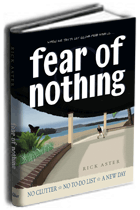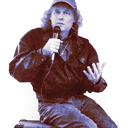A new scientific study lends credence to the idea that to-do lists don’t work. The study suggests that, when it comes to taking action and creating results, humans have two-track minds.
The study, “Divided Representation of Concurrent Goals in the Human Frontal Lobes,” summarized in the Ars Technica story “In multitasking, more than two tasks do not compute,” used brain scans to observe brain activity while people did two or more things at once, and when they switched tasks or were interrupted. The resulting picture is of a brain that has two areas for guiding tasks. They can work together, for focus on a single task, but more often they split up, with one focusing on one task, the other one focusing on a second task.


